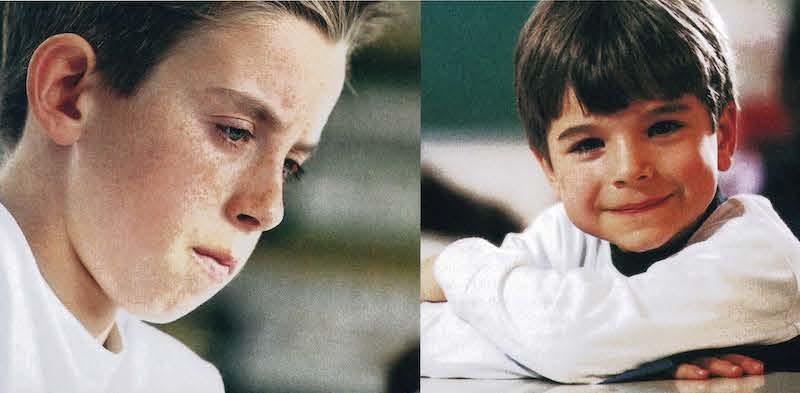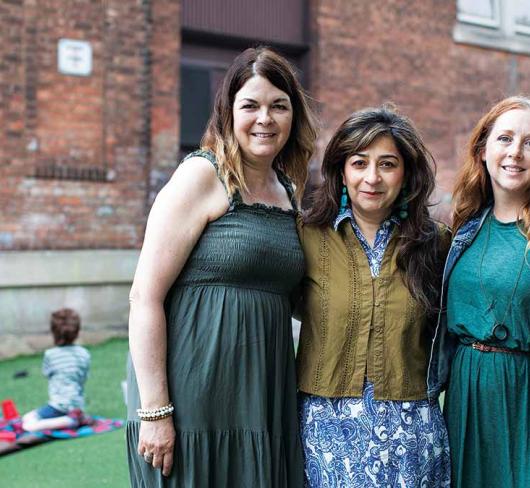
Boys' Culture and School Success
How can we be surprised that many boys are not interested in books?
As The Globe and Mail’s Sean Fine and others have reported, all the indicators of school success for boys are down and dropping: they drop out of school at a higher rate than girls, they have lower career ambitions than girls, they are diagnosed more frequently than girls with learning disabilities, and more girls go on to university. This comes as a direct contradiction to the prevailing wisdom of the 1980s, which was that girls were the ignored and abandoned element in the classroom, that their adolescent struggles with self-esteem were due to an environment which privileged masculine values. (This view was encapsulated by an influential book of 1982 called In a Different Voice, by eminent feminist Carol Gilligan.)
Suddenly people are interpreting these statistics as evidence of a new trend, when it’s not a trend at all, but a proud, conservative and deeply entrenched tradition of telling boys that their studies are less important than their physical prowess and manual abilities. My university classes in literature, art history and philosophy were mostly made up of women, and that’s as far back as the 1980s. Boys have always been discouraged from being in any way sensitive or intellectual (except in the domains of math and science —and now they are losing their lead even in those areas).
Throughout my childhood in the 1960s and 1970s I was made to feel less than manly for my facility with words and interest in art and music; I knew these were things to hide from my more macho friends. The classroom — like the culture at large — was a macho place then and is apparently an even more macho place now. How can we be surprised that boys are not interested in books? We are constantly told by governments and business leaders that the school of hard knocks is what got them where they are, and that a technical skill is far more useful in achieving financial success than any airy-fairy philosophical thinking. Selfexpression, a facility with language, a sensitivity to esthetic nuance — none of these things will help you to become an entrepreneur, or a golf pro who might become a provincial Premier.
And why are girls less influenced by the anti-intellectual bias of the culture? Because despite a half-century of feminism, popular role models for children are still largely male. Action heroes, sports stars, sitcom stars, hip-hop stars are mostly men. The CBC news is still delayed by all-male hockey games at playoff times, because all-male hockey games are still what this country enjoys most. Girls are less likely to want to be Jesse Ventura when they grow up, because they just can’t be. It’s impossible. Boys’ disdain for their studies merely reflects their parents’ disdain for educated men. A Pierre Elliott Trudeau would no longer be elected Prime Minister in this country, I suspect, and not because of his policies, but because he would look suspiciously highbrow, with his wit and his literary references — which means elitist, which means bad.
Conservatives are saying that what we need, in the education of boys, is more machismo. Right-wingers in the U.S. —whose academic indicators show a similarly widening gap between boys and girls — are interpreting the new statistics on male behaviour as evidence of an insidious “feminizing” of the classroom, in which boys are no longer allowed to be boys. Christina Hoff Sommers, in a recent book called The War Against Boys, argues that boys’ naturally rough and competitive natures are being “pathologized” by politically correct classrooms. Some Canadian parents are saying that boys need more male role models in schools, pointing out that most elementary school teachers are female.
Which is true, but it always has been. Winston Churchill’s first teachers were female — as nannies always have been. Most of us received the bulk of our early learning, even before we went to school, by that vast corps of teachers called mothers. North American society does not seem to have been notably feminized by this influence.
Most people would agree that an overly masculine environment represses self-expression, and that an inability to communicate would indicate a failed education. Even Carol Gilligan, who has claimed that boys are privileged in this regard, has conceded recently that maybe boys suffer from pressures to silence their own sensitivities — particularly pressures from fathers. And guess who is organizing a conference to help Vancouver boys on their way in to high school, and tell them that they are “just as important as girls?” A group of mothers.
If you make the classroom a more “masculine” place, you will only reward the most anti-intellectual tendencies the boys are feeling, and their academic performance can only continue to drop. If “feminizing” boys means making them sit still and concentrate, if it means teaching them that emotional sensitivity to a story is a sign of intellect, not of weakness, then “feminization” sounds like the best part of education to me. Bring it on.
Russel Smith is a freelance writer who lives in Toronto. His book of short stories, Young Men, was shortlisted for a City of Toronto book award. This article first appeared in The Globe and Mail on September 9, 2000.

